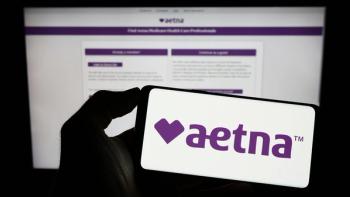
Few will send workers to exchanges
Employers are staying in the insurance game, much as they may grouse about the cost and hassles associated with providing health coverage
EMPLOYERS ARE staying in the insurance game. Much as they may grouse about the cost and hassles associated with providing health coverage, a new survey finds most employers plan to keep their employer-sponsored group medical plans intact, rather than encourage employees to use state health insurance exchanges when they become available in 2014.
According to a survey by the Willis Group and Diamond Consulting, 55% of employers say they would likely continue to maintain their health plans even if state exchanges created under the Patient Protection and Affordable Care Act (PPACA) offer competitively priced rates for individual employee health coverage (see chart).
The survey, which included 1,400 employers whose plans cover more than 9 million employees, dependents and retirees, affirms that intuition. When considering penalties, more than half (52%) say they are very or somewhat likely to invest in the requisite employer-sponsored health plan and avoid the penalties. Only 12% say they are likely or somewhat likely to pay the $2,000 penalty per employee and direct workers to state exchanges to individually purchase coverage. Even fewer (7%) say they're likely or somewhat likely to pay the penalty, send workers to exchanges for coverage, and simultaneously increase their compensation to reflect any savings.
Gruenberg hypothesizes that a handful of factors come into play. First, should employers drop coverage and shunt workers over to exchanges, they'll have to pay a $2,000 penalty. Even if that's less than what they're paying for coverage under their current plan, that money doesn't buy them anything in terms of employee goodwill because they're not providing a benefit directly to the employees.
"What do you get from it?" asks Gruenberg. "It's just another expense."
What's more, exchanges represent an unknown at this point and the process of trying to communicate to employees about the benefits available through the exchanges-particularly for a large multi-state employer-would be complicated.
"What are you going to do?" Gruenberg asks. "Communicate clearly about life and dental insurance but not medical? How are you going to communicate about exchanges with employees all over the country?"
While employers plan to maintain coverage, don't expect the status quo. The majority (88%) expect reform legislation will increase the cost of employer-sponsored coverage. More than half (52%) expect it will increase the number of employees covered under their plan. Nearly the same number (53%), expect that simply meeting the adult child coverage mandate will propel costs by 1% or more.
Given those anticipated cost increases, most respondents (72%) plan to increase employee contributions to offset increased premiums and higher administrative costs. Others say they'll reduce coverage.
"The bottom line here is: If you want more in terms of coverage and protection you're going to pay more," he says.
-Shelly Reese
Commentary is independent of source data.
Newsletter
Get the latest industry news, event updates, and more from Managed healthcare Executive.
























